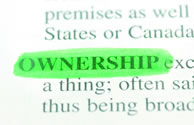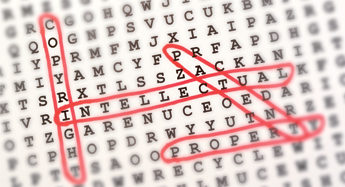Licensing intellectual property
Licensing intellectual property enables a third party to practise the technology covered by it, typically in return for a royalty stream. In general, the intellectual property owner will only be able to negotiate such a deal if the intellectual property is of particular use to a commercial licensee, or alternatively in the case of patents prevents a potential licensee from engaging in a business without taking a licence. Such a situation may well arise after a successful collaboration between a life sciences company and its prospective licensee. Granting a licence in respect of a particular field of use is a particularly attractive way to license technology, since it enables the company to realise a royalty stream from its technology in a field which is perhaps not its key target market or in which it is incapable of developing itself while maintaining exclusivity for itself in the non-licensed fields of use. For example, the innovator of a monoclonal antibody technology may license that technology to a third party for oncology applications whilst retaining applications in arthritis and other diseases for itself or for other licensees. Intellectual property licences can be extremely complex agreements and it is important that the company does not give too much of its intellectual property estate away. On the other hand, the company may require a licence from a third party in order to maintain a freedom to operate, in which case it must ensure that it does not pay too dearly or frame its access rights too imprecisely. Accordingly, when negotiating and drafting licences, special care is required in respect of the following issues:
For example, the innovator of a monoclonal antibody technology may license that technology to a third party for oncology applications whilst retaining applications in arthritis and other diseases for itself or for other licensees. Intellectual property licences can be extremely complex agreements and it is important that the company does not give too much of its intellectual property estate away. On the other hand, the company may require a licence from a third party in order to maintain a freedom to operate, in which case it must ensure that it does not pay too dearly or frame its access rights too imprecisely. Accordingly, when negotiating and drafting licences, special care is required in respect of the following issues:
Exclusive / Non-exclusive
An exclusive licence arises where the intellectual property owner agrees with his licensee to grant no other third party a licence under the intellectual property (while at the same time warranting that he has not granted any other licences) and also agrees not to exercise the right himself. This makes the exclusive licensee the only party that may work / use the intellectual property. Also, an exclusive licensee in respect of a patent may have the right to bring patent infringement proceedings. Therefore, an exclusive licence is more than a mere permission to do something that would otherwise infringe an intellectual property right, it is also the right to exclude all others (including the licensor) from acts that would infringe the intellectual property right.
A non-exclusive licence, as the name suggests, is essentially the opposite of an exclusive licence. In other words, the licensor may use the right himself and may also grant other non-exclusive licences to other third parties.
Field of use / Territory
A licence in respect of an intellectual property right can be subdivided into various fields of use (or applications) for the technology covered by it. For instance as discussed above, particular monoclonal antibodies can have therapeutic applications in a number of disease areas. An innovator may choose to licence each of the applications to separate companies e.g. non-exclusive licences to companies in oncology research and autoimmune diseases, or potentially an exclusive licence to a party developing therapeutics for one or more diseases.
 The territory in which a licensee can exploit the intellectual property can also be subdivided from anything from worldwide to smaller regions. Such that the licensee can reserve certain territories to itself or to other licensees in a similar way to field of use restrictions.
The territory in which a licensee can exploit the intellectual property can also be subdivided from anything from worldwide to smaller regions. Such that the licensee can reserve certain territories to itself or to other licensees in a similar way to field of use restrictions.
Furthermore, it may be appropriate for different royalty rates / mechanisms to apply in respect of different fields of use or territories depending on their relative commercial value.
Royalties
When negotiating a licence it is important to make sure that the provisions relating to the payment of royalties are as clearly drafted as possible. Poorly drafted royalty clauses are often the cause of significant disputes between the parties after significant sales of licensed products have been made because poor drafting results in conflicting (often wildly conflicting) ways of interpreting royalty payment obligations.
If you have any questions on this article or would like to propose a subject to be addressed by Synapse please contact us.


Colin McCall
Colin is a senior associate in the Intellectual Property group based in our London office.

